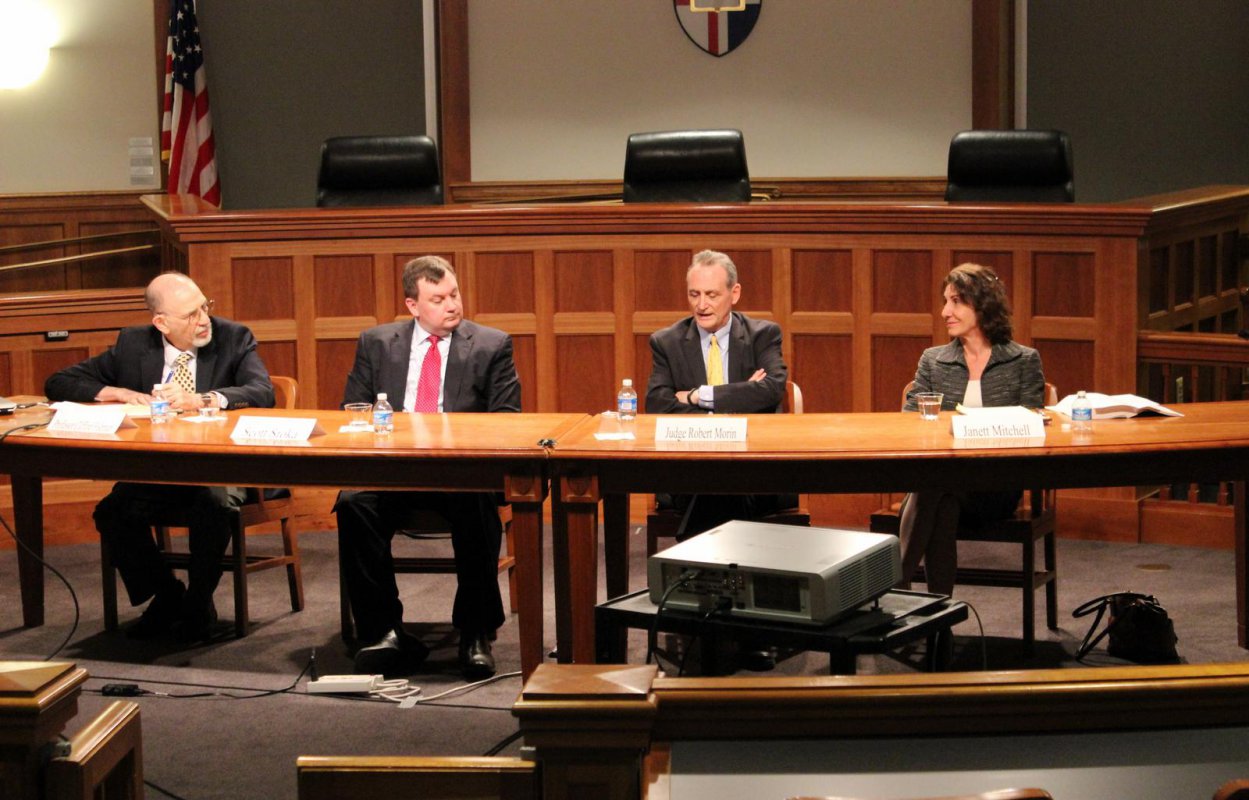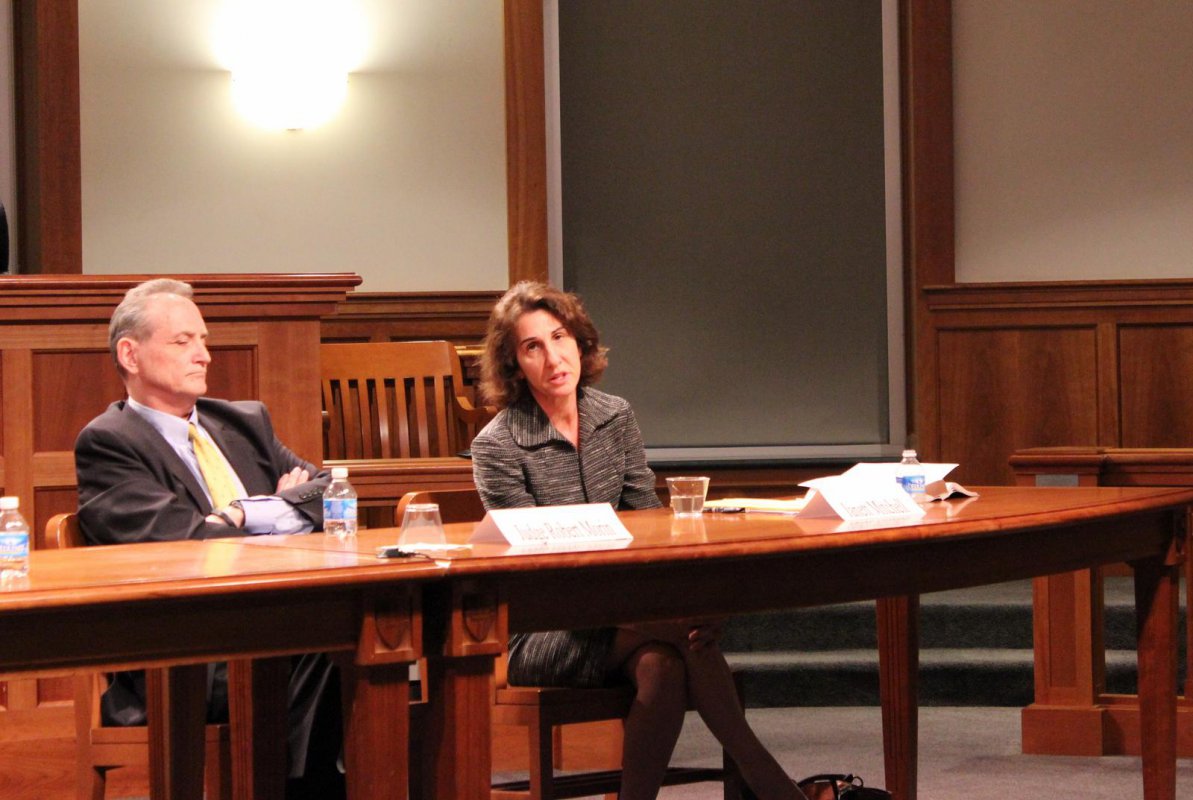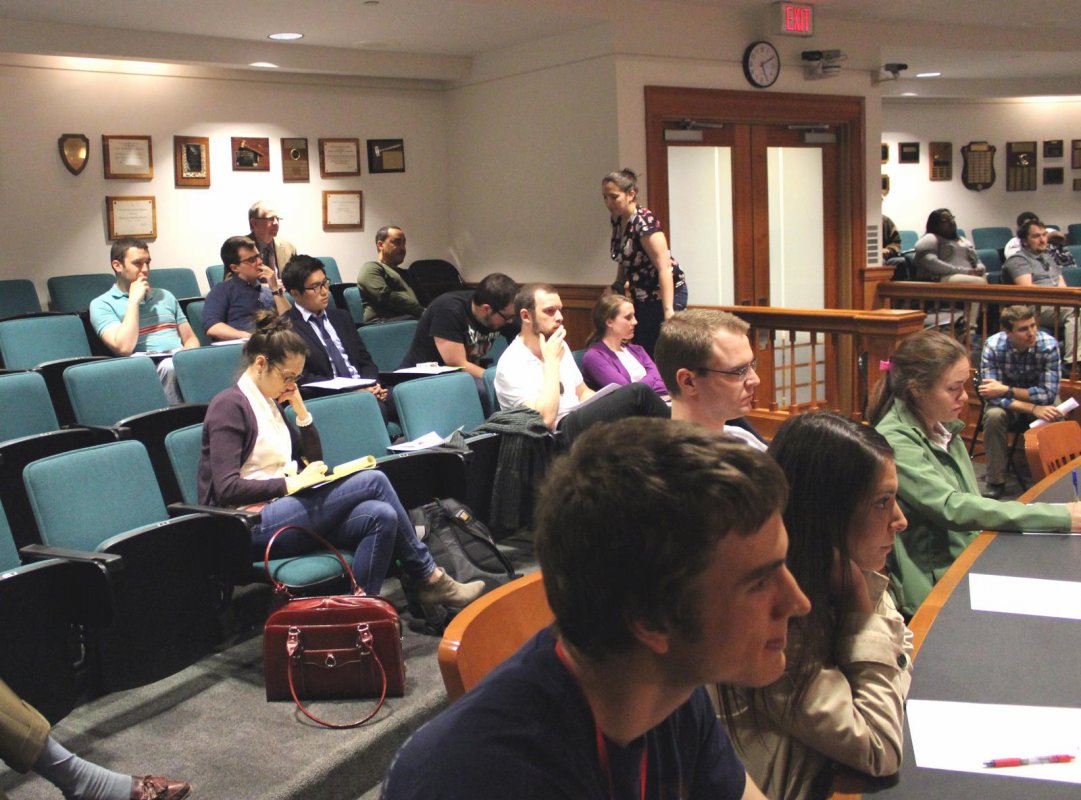
The practice of criminal law as either prosecutor or defense counsel presents a higher risk than most other areas of legal practice for making an ethical misstep, according to experts.

Students learned more about the topic as CUA Law's Council on Professional Conduct presented "Criminal Ethics: How to Ethically Practice Criminal Law" on April 16. Panelists included the Hon. Robert E. Morin, Associate Judge of the District of Columbia Superior Court; Scott Sroka, Assistant U.S. Attorney, U.S. Attorney's Office for the District of Columbia; and Janet E Mitchell, CUA Law Class of 1992, an attorney with the Public Defender Service for The District of Columbia. The talk was moderated by CUA Law Professor Clifford Fishman, himself a former prosecutor. The panel discussed the importance of strict adherence to Brady disclosure, which obligates the prosecution to reveal evidence or information that would prove the innocence of the defendant or would enable the defense to more effectively impeach the credibility of government witnesses. Speakers also focused on the critical importance of being mindful of ethical behavior and professional obligations at all times, avoiding the temptation to cut corners to win a case. "A trap lawyers fall into is they think the cause is bigger than the profession," commented Judge Morin.

For defense counsel, Mitchell noted that it can be frustrating to defer a client's wishes, regarding accepting a plea bargain as one example, when the attorney is not convinced that the client is thinking logically. Mitchell said that most public defenders are assigned clients at times who are mentally ill, and this can present some gray areas in the attorney-client relationship regarding strategy and effective representation. Panelists reminded students that overzealous representation from either side must be checked. "It's often a prosecutor who gets sloppy, and that's just as bad as being malicious," noted Assistant U.S. Attorney Sroka. Beyond professional obligations, there is another compelling reason to practice ethically at all times, said Judge Morin. "A poor reputation is easily gained and hard to erase." The panel presentation qualified as a Professional Conduct Education Credit.
